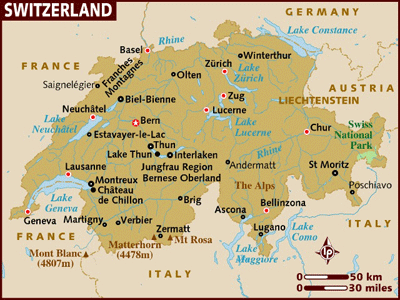
IN an unprecedented twist, at 0.055 per cent, Switzerland has become the first government in history to sell benchmark 10-year debt at a negative interest rate.
Nigeria’s bond yield is 14.512. Switzerland ’s central bank sold its bonds at 0.055 per cent. Selling a bond at negative yields essentially means that you are paying the Switzerland government to lend money to them.
Financial experts have wondered how in the world can a country borrow at a negative yield?
The financial experts explained that, the idea is to discourage you from lending money to the government since the interest rate is negative.
‘’But in an economy where the financial market is after safer cash and will rather have the government keep their money rather than invest, then it does makes sense. It actually isn’t the first time this is happening’’, they explained.
Bonds with negative yields have become one of the world’s fastest growing asset classes, accounting for around a quarter of Europe’s government debt market.
Last year Germany, Austria, Finland and Spain have all sold shorter-term debt at sub-zero yields. But this is the first time that investors were effectively charged for lending money to a government for such a prolonged period.
They bought SFr232.51m (€222.4m) of Swiss debt that will not be repaid until 2025 at a yield of 0.055 per cent — and the issue was comfortably oversubscribed.
Financial experts explained further that one major reason has to be all the money printing embarked upon by central banks around the world.
According to them, following the economic crisis of 2009 and the ensuing recession that followed, many western countries and their CBN decided to stimulate their economies by pumping money into the financial system (essentially printing).
‘’They did this by buying up bonds at near zero interest rates giving the financial markets excess cash to play around with.
The hope was that it will stimulate the world economy as money will now be available to lend to small business, invest in capital expenditure which then leads to hiring of employees and then increase in salaries followed by increase in consumer spending and then increase in profits and then the cycle begins again”, they explained



